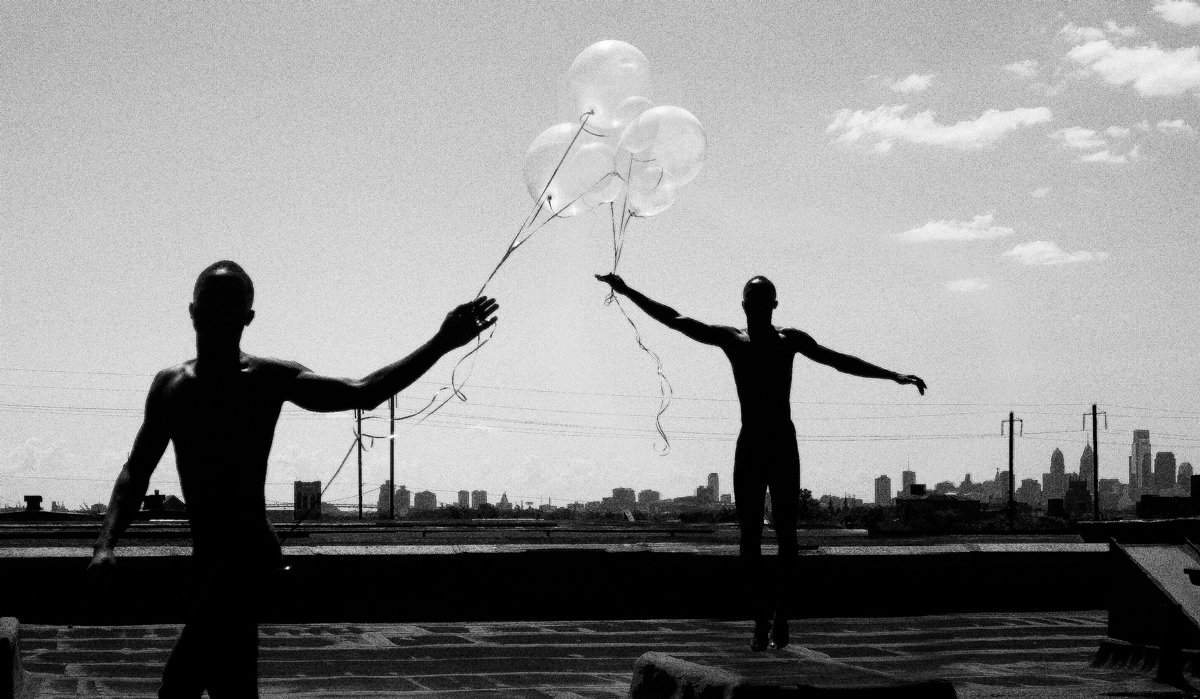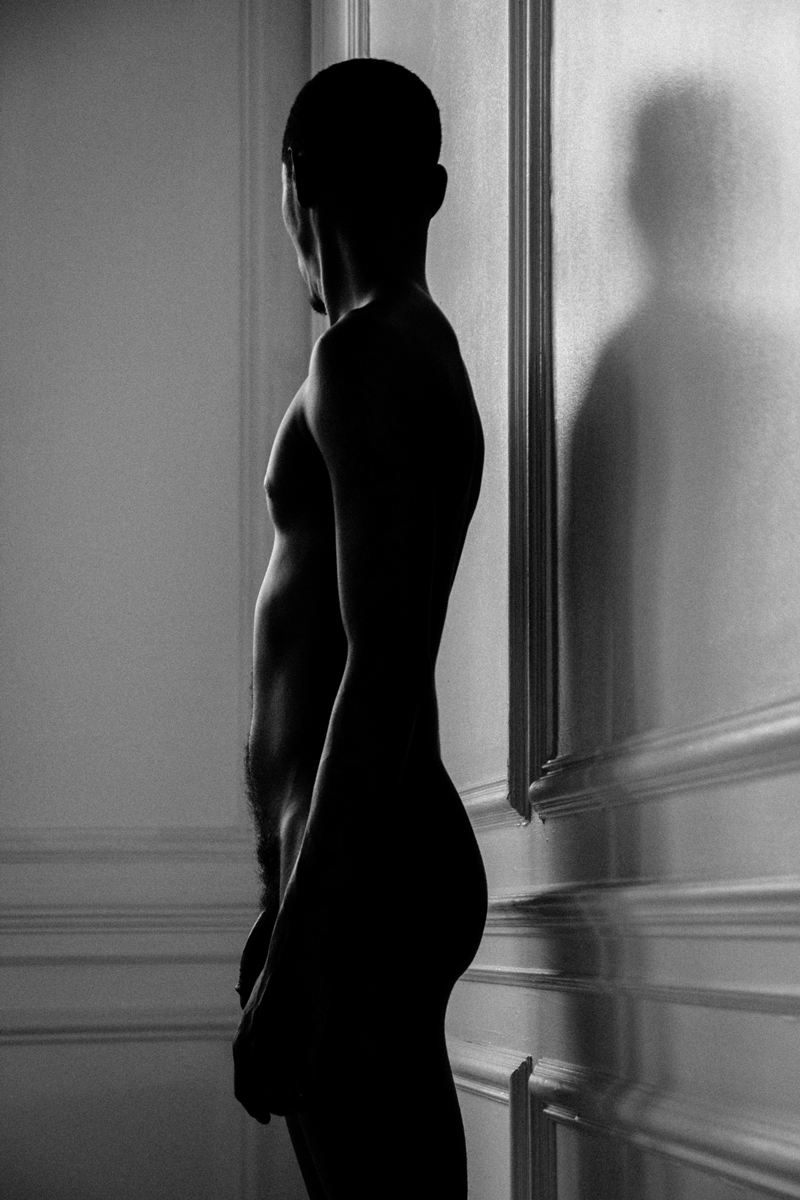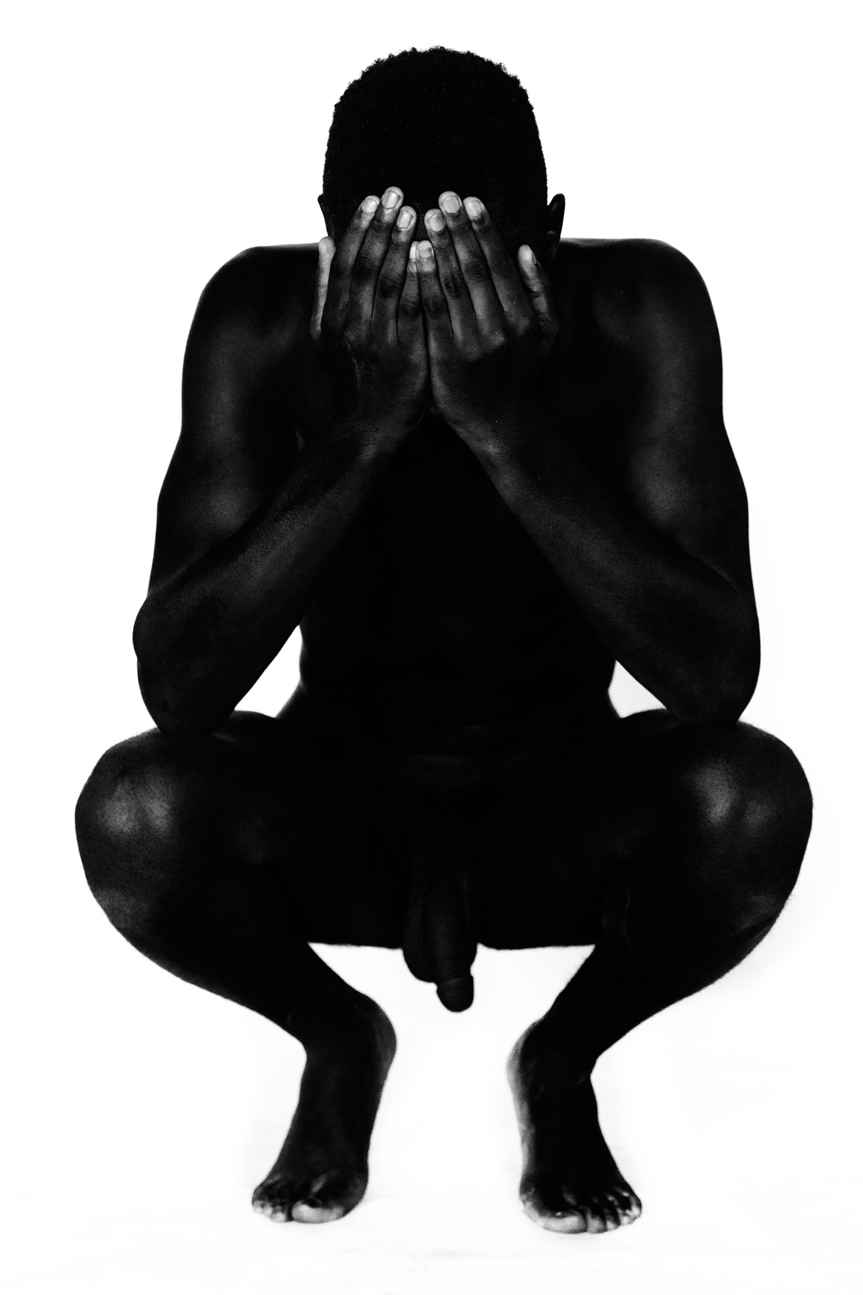Through his work, Philadelphia-born multi-disciplinary artist Shikeith explores “memories of being ostracised and traumatised by other black men; in addition to investigating the social constructs historically, and pre-logically applied to the black males masculinity, emotionality, and humanity.”
Simply put, growing up, Shikeith didn’t feel like he fit into a certain type of black masculinity expected of him, and he’s keen to investigate why he was victimised for it: “I aim to question, and reveal the bigoted, historical influences that control the ways contemporary black males psychologically view themselves and each other,” he explains.
In his film #Blackmendream, Shikeith used social media to ask other black men to respond to a questionnaire that investigates the individual black male experience, but he’s never answered it himself. So we put his questions back to him, and here present a range of his best photos.

1. When did you become a black man?
I became a black man earlier than I believe I should have. I grew up a very quiet, but creatively expressive, child. That was taken from me in second grade, when I was verbally assaulted by another black boy for not being like the others. At that point the freedoms of childhood evaporated for me. I felt like I had nowhere to turn other than to mimic the black men the other black boys had assimilated.
2. How would you describe your interaction with other black males in your youth? Adulthood?
The challenges that arose in my youth haunted me for a very long time. Essentially, I had become the punching bag for a lot of pubescent anger. Out of fear I conditioned myself to walk hunched, with my head down to avoid eye contact with other black males–which lasted long enough to cause painful, damage to my posture. I did not feel safe– not even in the spaces of my own head could I escape the trauma that had accumulated from my interactions with other black males. However, as I entered adulthood I have been able to build remarkable bonds with other black males from all walks of life. There was a trust that was absent that I have gained through standing my ground as an individual. Today, I feel a true sense of community, and an obligation to lay the foundations for others who are being ostracised to build from.
3. What makes you angry? Sad? Happy?
The denial of a person’s humanity is a dark quality that has consumed the world. It makes me incredibly angry and sad that there is legislation preventing humans from having the opportunity to live and love. Those kinds of injustices are ugly. However, what makes me happy is to see my generation, and prior bridging to fight for marginalised communities. The possibilities of the future are undoubtedly brighter in our hands.

4. Have you ever dealt with emotional stress directly related to being a black man?
Having to mould and shape myself unnecessarily for the luxury of others is a tiring, and stressful experience. Walking at a pace that would not frighten someone; assuring that my hands are visible in retail spaces while being followed by security; not making eye contact with police officers for fear of seeming suspicious enough to be approached. It’s taxing on your spirit to not have the comfort of just living.
5. Have you ever been depressed?
Not having the freedom to exist took me into dark places very early in life. I was so overwhelmed with how traumatic life had grown that in 8th grade I attempted to remove myself from this world. I was emotionally paralysed, with an unforeseeable future alive. I continued to struggle with depression into adulthood because I never had the proper resources to work through any of the negative energy that followed me.
6. Were you able to express your depression to the people around you?
My entire family witnessed me spiral out of control. I gained significant amounts of weight as a result of my mental state, and it was obvious the roots were not gluttony. Most of the time I felt blamed before I even spoke up, so I kept everything to myself to avoid further conflict. Eventually, I had a conversation with my mother in which she served tough love expressing I should “build a bridge and get over it”. I feel like she just did not have the answers to save me.

7. What has stopped you from expressing yourself emotionally?
For me making art is the highest form of emotional expression. Being afraid of the thoughts of close-minded individuals silenced me for a long time. There have been many instances where I deteriorated back to not wholly articulating myself through my artwork. In grade school I stopped making art because I believed it would cease the bullying; in my adulthood I experienced making beautiful things void of a personal narrative out of a fear of being judged.
8. How were you raised to deal with your emotions?
It is difficult to say if there were any instructions. I feel like I dealt with them alone.
9. How do you feel you’re perceived by other black men?
I would share who I am with other black males, and build platforms for them to share who they are. We can do away with the perceptions. They are killing us.
10. Do you cry? When was the last time you cried and why?
Crying has not always been a thing for me. I was trained to believe that was not something boys did. As an adult I rediscovered the benefits of crying, and it has offered relief I had not ever experienced. The last time I cried was today because I am beginning to see the fruits of my honesty as an artist.

11. What has your mother/father told you about expressing your emotions, and when?
I was not raised by my father, so he did not influence me at all. My mother on the other hand has a resilient personality and was not as affectionate then as she is today. I remember seeing my mother cry for the first time with my sister, and we both could not handle it because it was a rare showcase. My grandmother would coddle me primarily, but even still there was a disconnect with what type of emotions I should have on display.
12. What’s the hardest thing about being a black male?
There is a disturbing beauty affixed to the silence of a Black man. To experience your complexities as a human being be stripped away from you for the comfort of others is one of the most degrading experiences to endure. Having to witness the violence as it pertains to the extrajudicial killings of American citizens that share my reflection is terrifying. Furthermore, being told your feelings are nothing more than disruption.
13. What’s a repetitive happy dream you can remember?
I have no idea why but I always have this exciting dream where I am in a race to win tickets to see the Spice Girls in concert. I always win the race, but there’s never a concert. So I don’t know how happy that can be classified, but it’s a good time.
14. What’s a repetitive nightmare you can remember?
From middle school through adulthood I had on-going nightmares where I am being chased by a group of Black males on the roof of a building. Familiar faces who contributed to some form of harm in my life are always present. The only way I could escape them was by floating to an opposite building by a balloon waiting for me at the edge but I would be too afraid to fall. After years of failing inside this nightmare–I can finally say I built the courage to grab the balloon and float away.
Credits
Text Stuart Brumfitt
